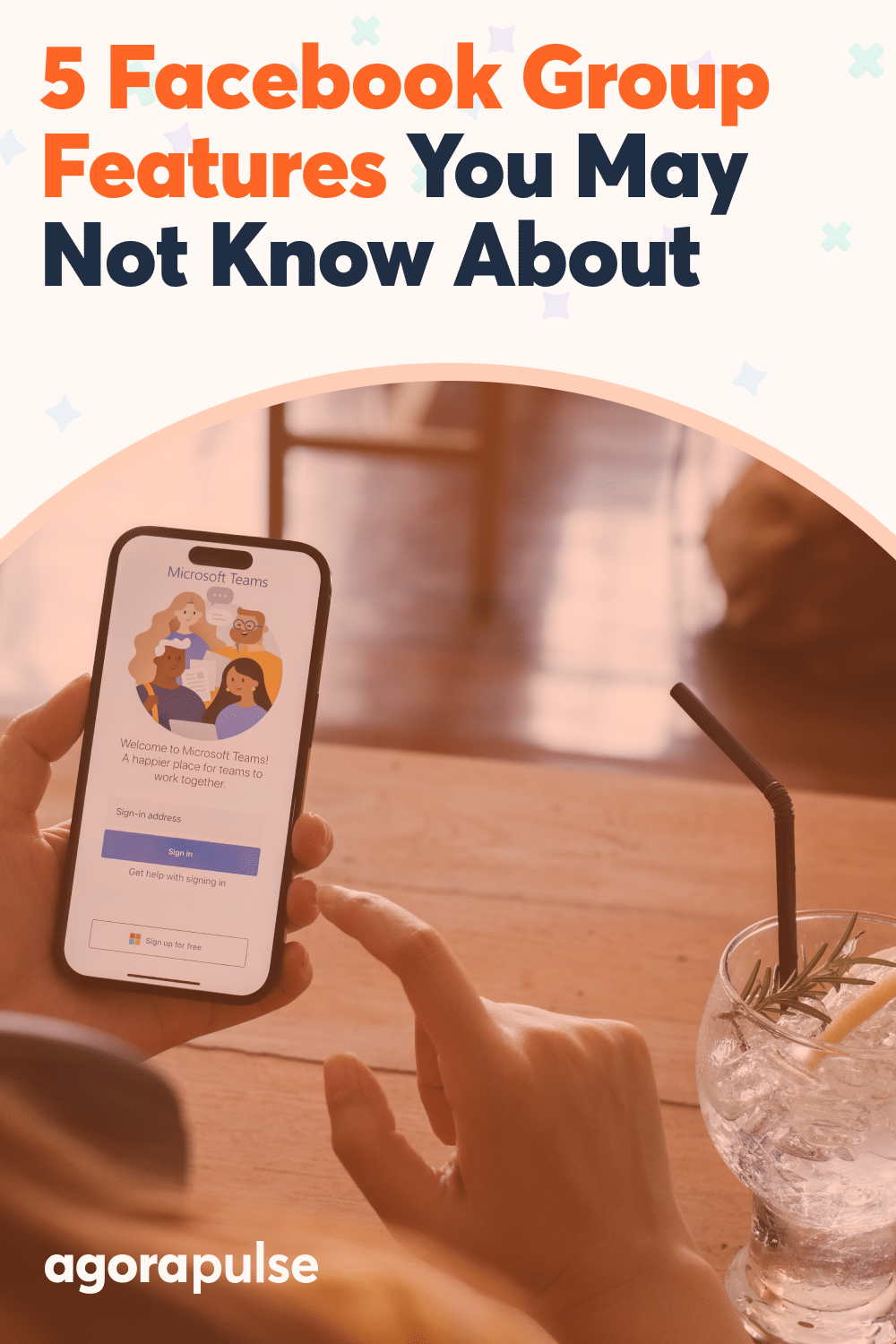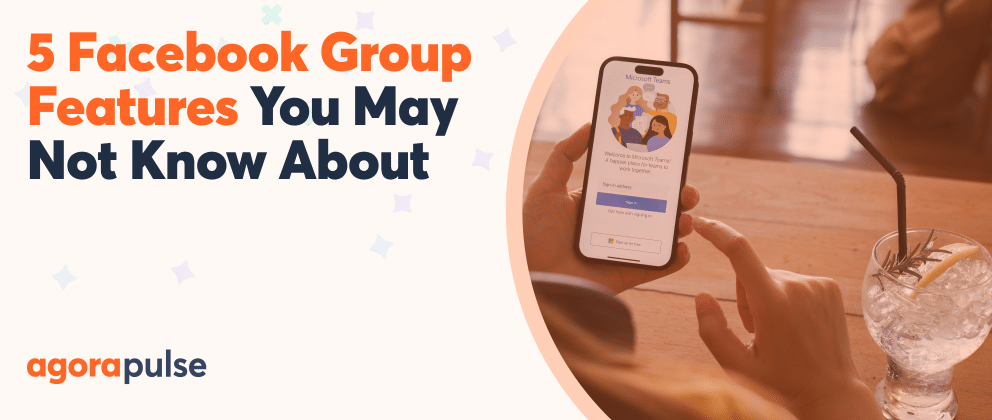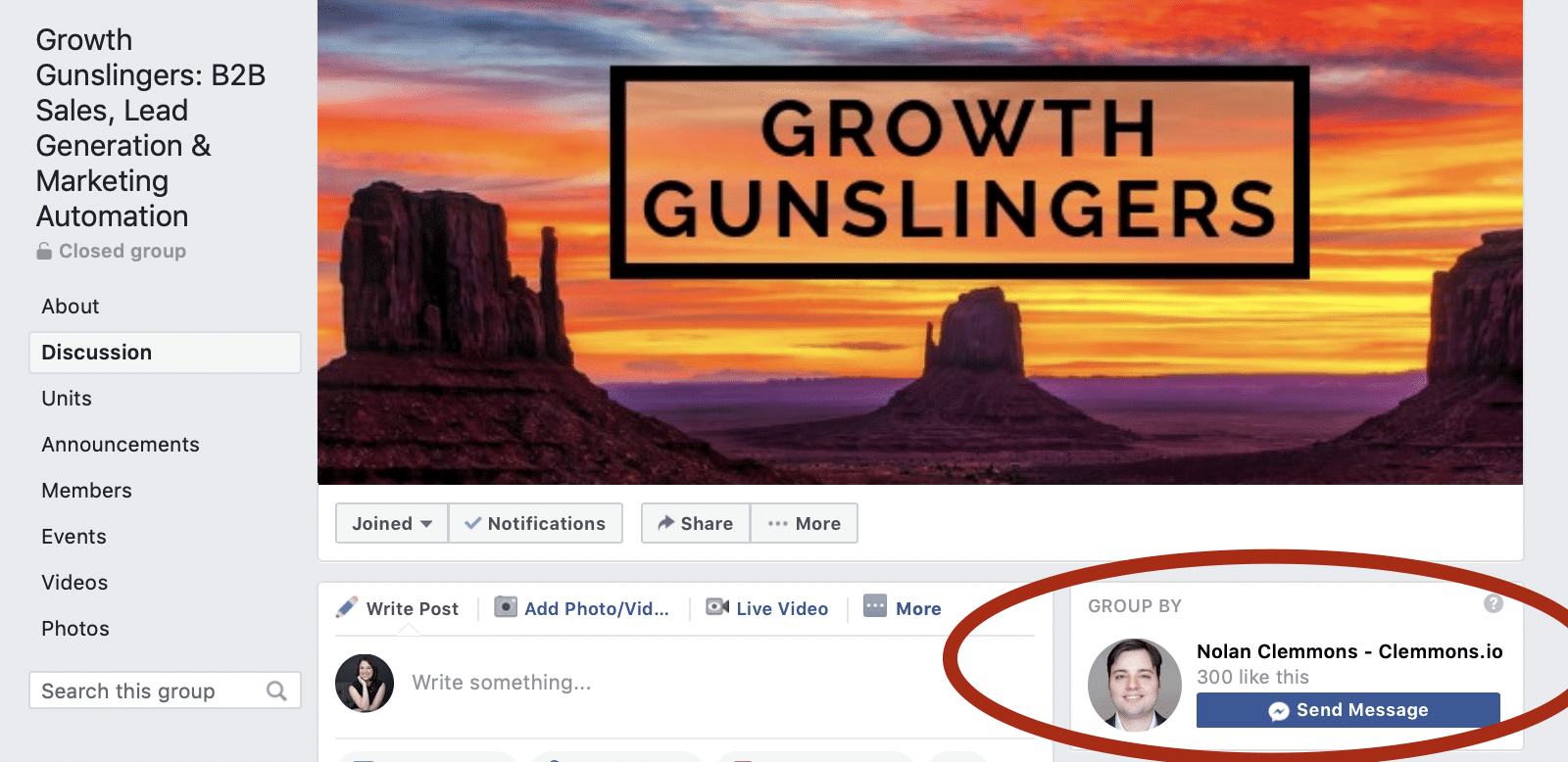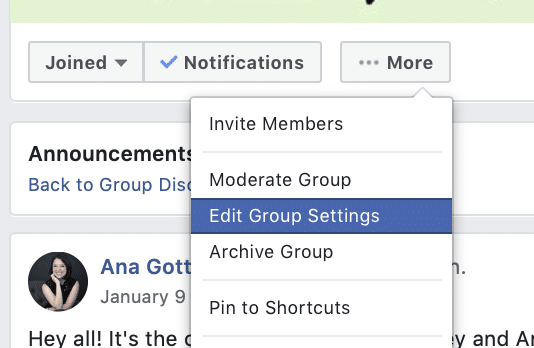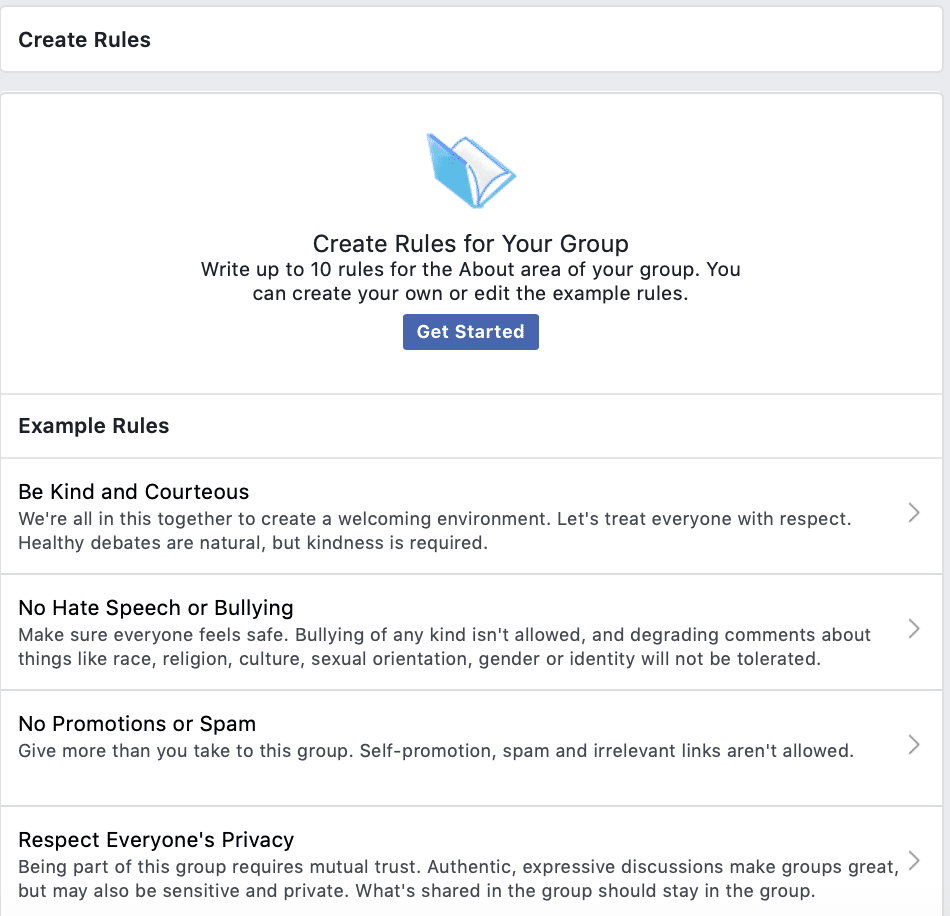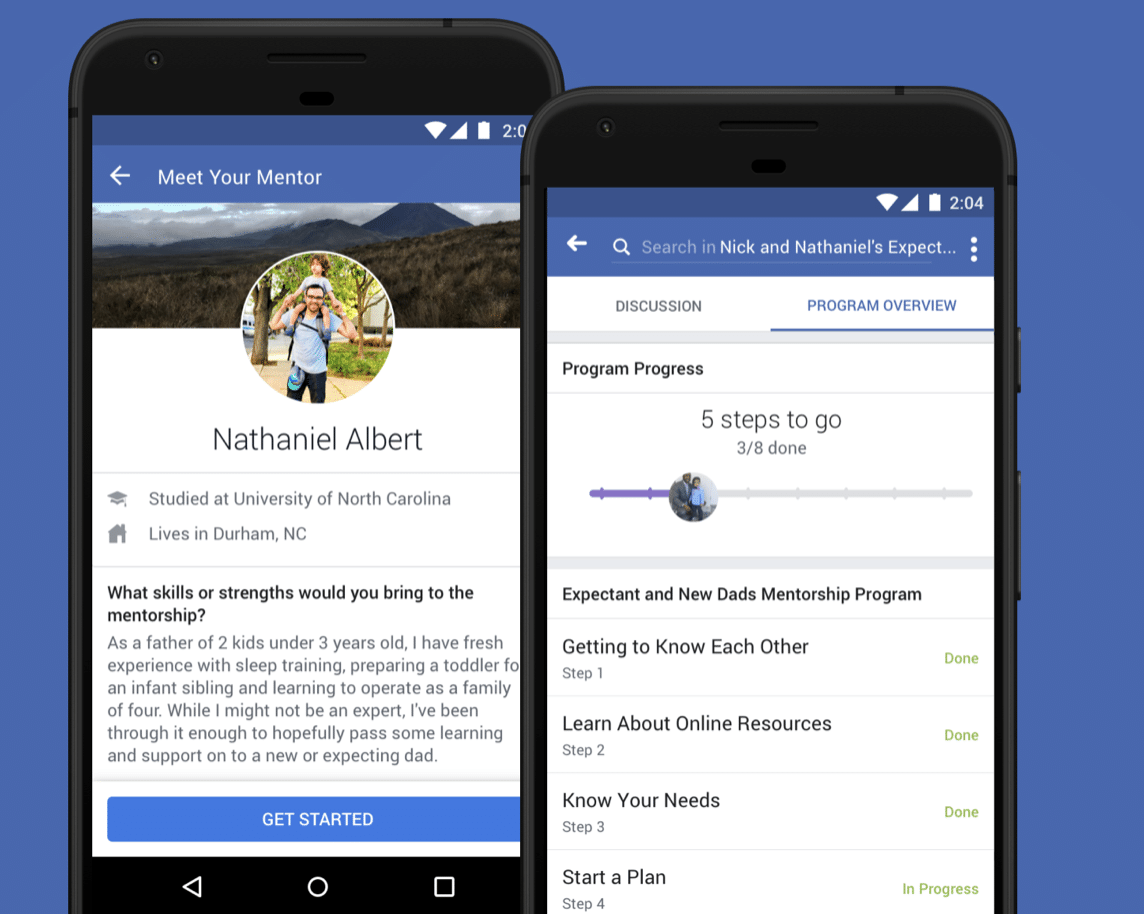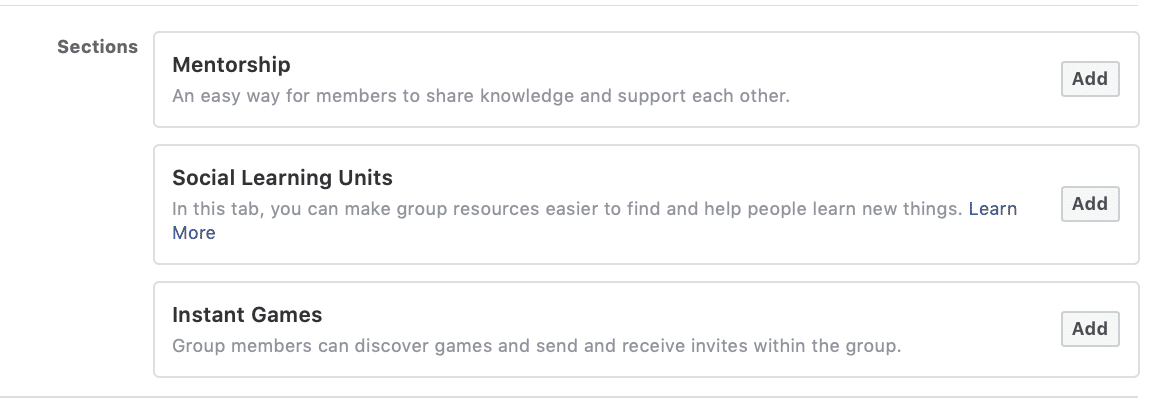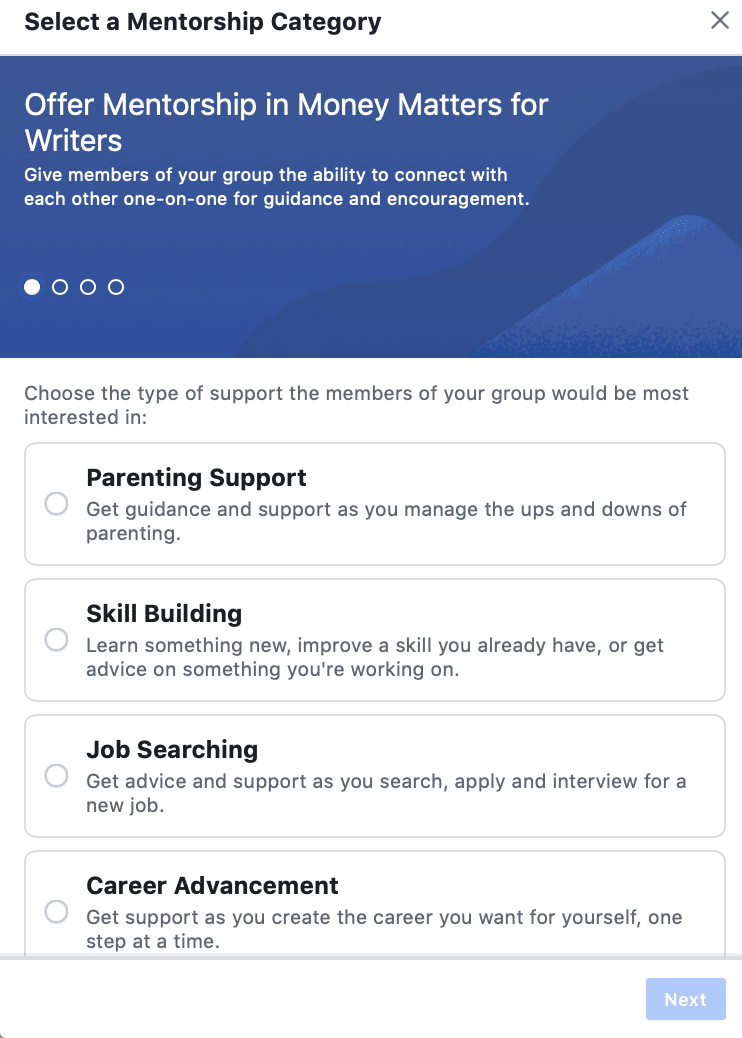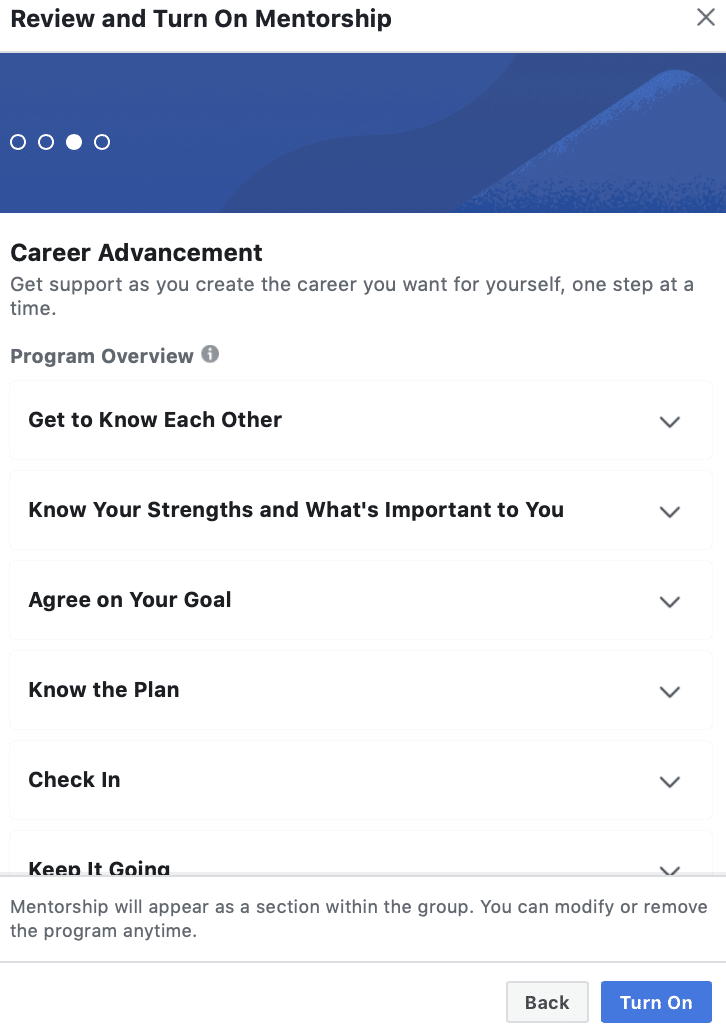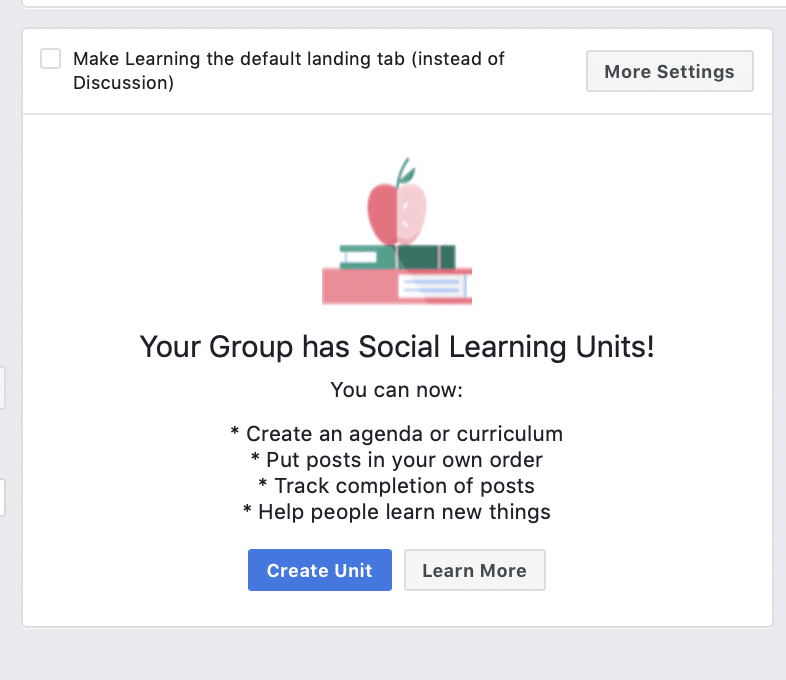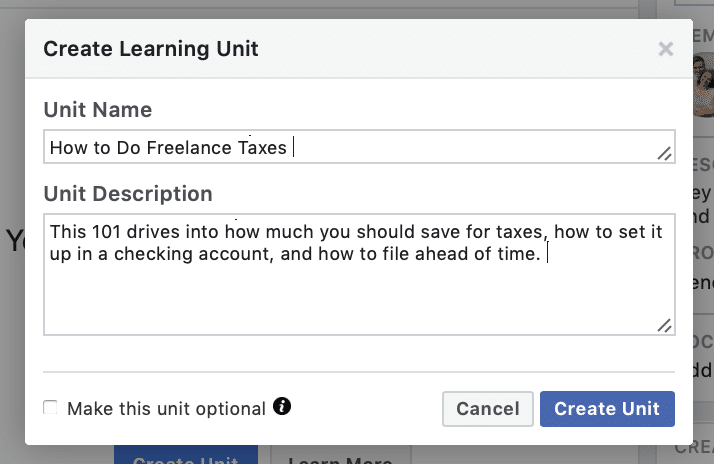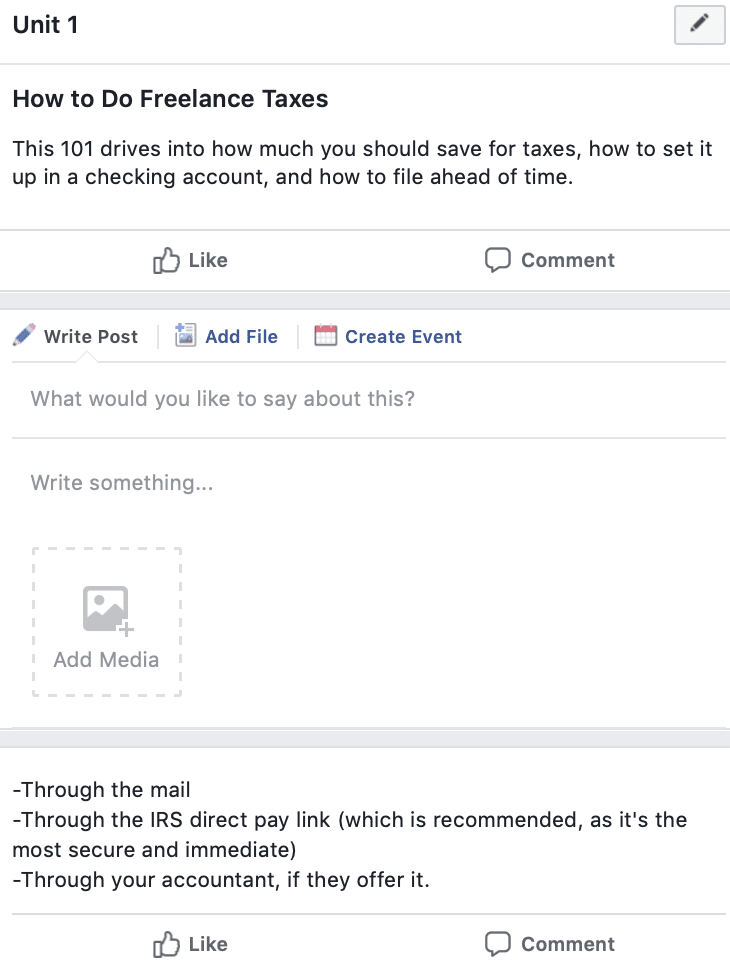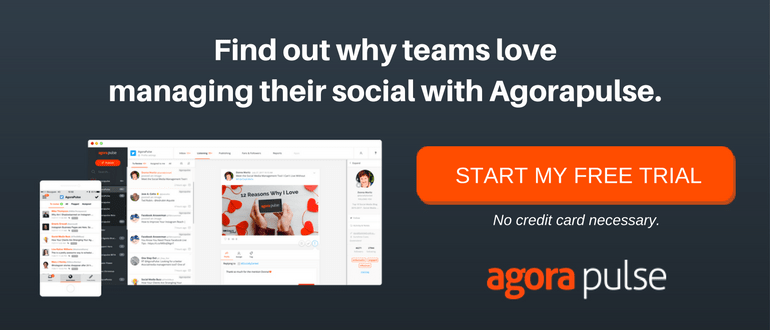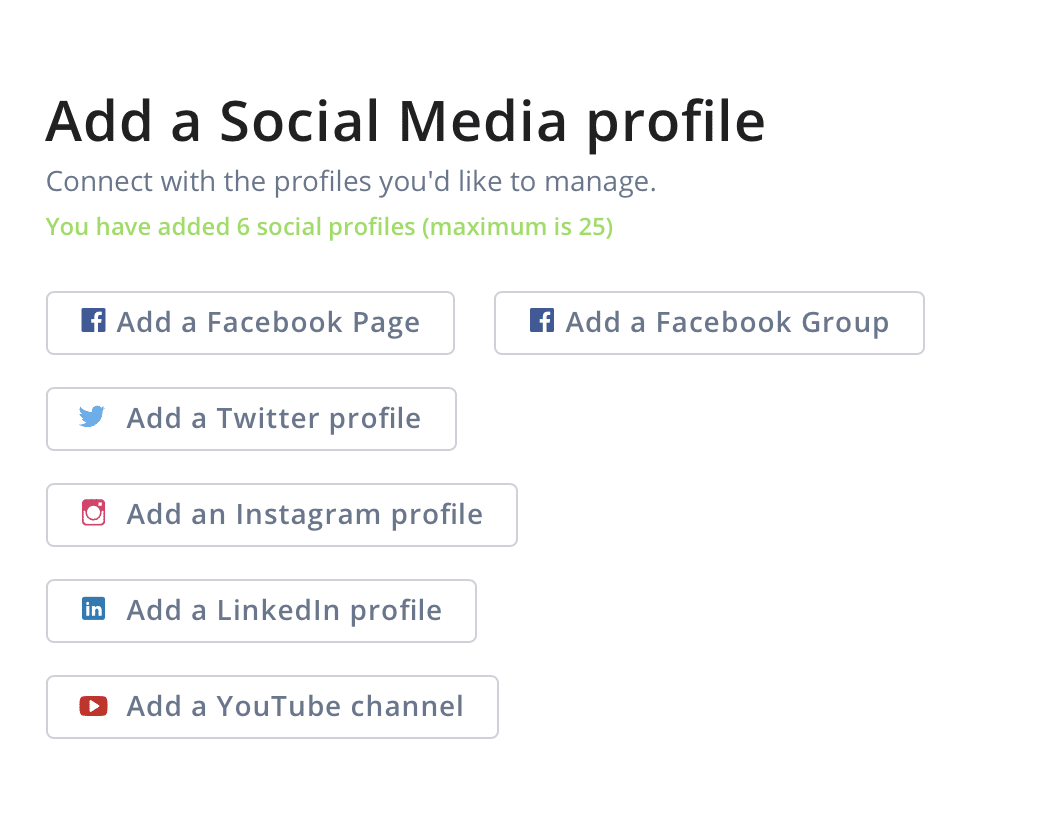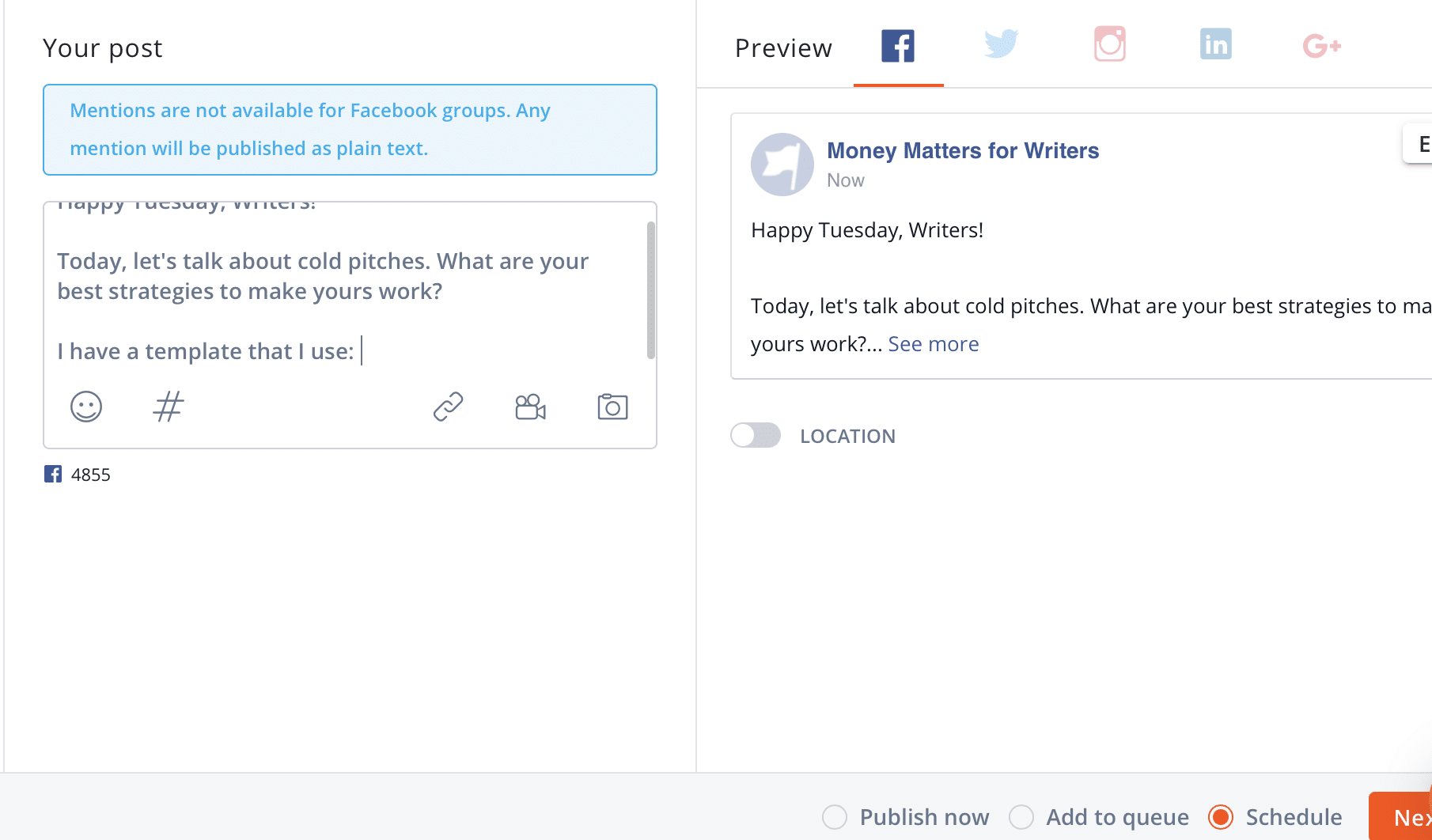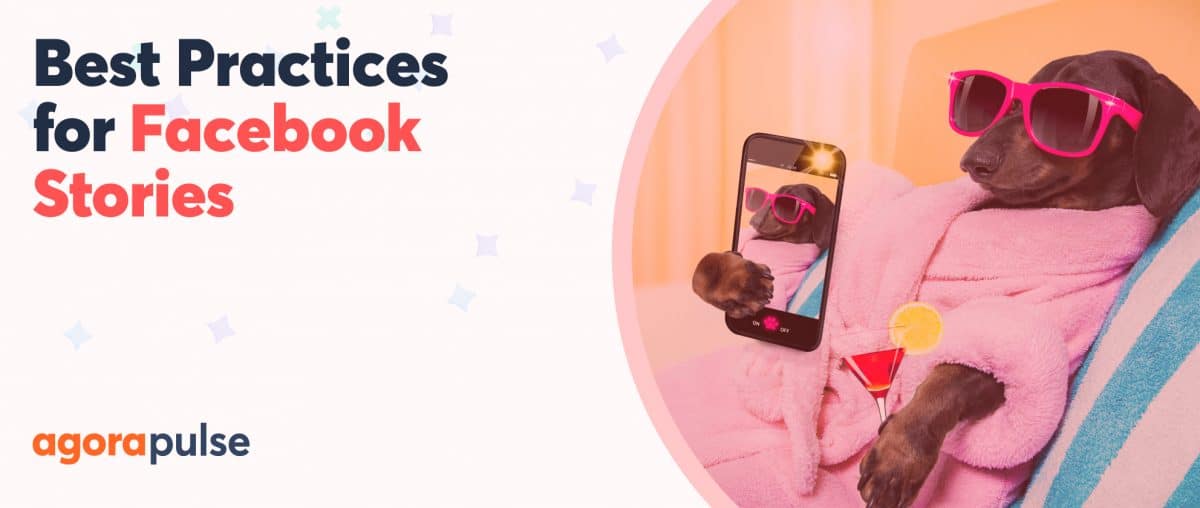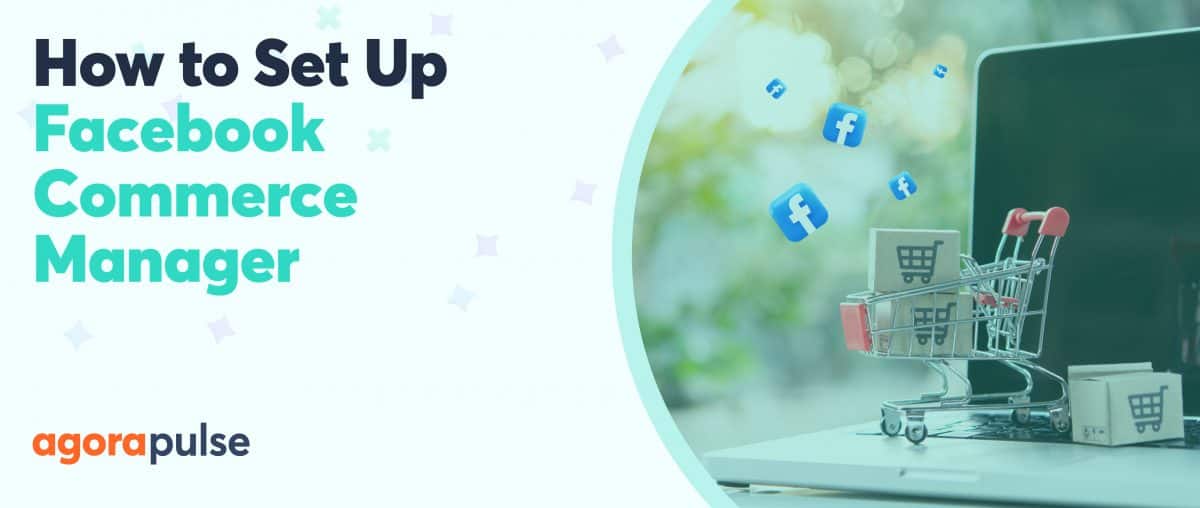These Facebook Group features can offer enormous value to your audience and visibility to your brand—and you may not even know they exist!
Facebook groups are a cornerstone of social media marketing.
They give you the opportunity to form exclusive groups and establish tight-knit communities centered on your brand. Here, you can share brand information, get customer feedback, offer support, provide education, and so much more.
A Facebook Group offers value to your customers that goes even beyond what your product or service alone delivers, making your brand invaluable for your audience and keeping people so engaged they won’t want to look anywhere else.
They also give you the opportunity to rank higher in Facebook’s algorithms. Group content will automatically show up higher in members’ feeds than most other types of posts. They’re the natural antidote to declining organic reach, and so effective! Not only will your posts climb in priority, but users are more likely to interact with them.
But running a Facebook group and building a community can be hard work and stressful for a social media manager.
Fortunately, Facebook has been rapidly expanding its groups’ features in the past two years, which makes it increasingly easy to create an exceptional group your audience will love.
In this post, let’s look at five Facebook group features that you may not know about and discuss how to use each one.
1. Link a Facebook Group with Your Business’s Page
Have you linked your Facebook Group to your business Page?
When you do this, users will see that the group is associated with your brand or business, which can help to send them to the right place and establish more awareness. It’s always good to remind people who is offering the great content.
To do this, go to “edit group settings.”
Then, when you scroll down, you’ll see the option to link your Page. You’ll either be able to link a Page that you manage OR create a new one. This can be undone at any time.
If you have a group centered on your brand, make sure you take advantage of this feature. It takes just a few seconds.
2. Create Rules for Your Facebook Group
Anyone who has ever moderated a group can tell you that laying down ground rules early on is an important part of moderation. Fights break out over the most ridiculous things … and having rules in place allows everyone to know where the line is and how not to cross it. And if they do, you’re then fully within your rights to ban them for good.
Under the group settings, you’ll see the option to “Create Rules.” This will appear in the “About” area of your group, and you can write up to 10.
Facebook already has some rules written in that you can use if you’d like.
I definitely recommend keeping the hate speech/bullying rule, and the “no promotions or spam” rule. You can also add in rules about information shared in the group being kept there, or what happens if someone violates a group policy. (Are they muted, and then banned if it happens again? Banned outright?)
When the rules are in place, you and your admins know what to do when someone steps out of place.
Keeping everyone on the same page promotes transparency.
3. Mentorship
Groups are largely about relationship building. You’re building a relationship with your customers and group members, who are getting to know some of the faces behind your brand. They’re also getting to know each other.
Learning, therefore, often takes a central role in groups, with people typically frequenting those who offer plenty of information to them.
Facebook’s mentorship option allows group members to sign up as a mentor or mentee, so admins can match them up. They’ll then be taken through a guided program your brand offers within your group, keeping everything tied back to you.
How to set up mentorship
Want to offer mentorship? Start at that super-valuable “group settings” tab again, and then scroll until you see the Mentorship option.
You’ll see that group options include parenting support, career advancement, skill-building, job searching, and just general support. Choose the one most relevant to your group.
Facebook has templates ready to go for the mentorship program, so there’s not a ton that you need to do on your end.
If any of your team members will be mentors, you can offer formal training, and offer specific feedback to any mentors or mentees about specific things to look at during the program.
I have a small, exclusive writers group where we talk about how to increase our income. I may recommend that mentors offer lists of different goals. And I can provide them with tactical information for how to accomplish them and then encourage them to tailor the advice to their mentee.
To offer more value, I could also do an in-group live, where we discuss what mentees should hope to get out of the program and what questions to ask going in.
4. Learning Modules
Want to go above and beyond and offer exclusive content just for your group? Learning modules are the way to go.
Learning modules allow you to essential create courses and educational information that group members can work through, like taking an online course.
How to set up learning modules
Once you’ve enabled social learning units, head to the “Learning” tab that’s now appearing in your group’s navigation bar. You can choose “Create Unit.”
Each unit should be treated like a chapter in a course. If I were to host them for my group, I’d different units like “How to Send a Pitch,” “How to Do Freelance Taxes,” and “What Rates You Can Charge.” Each one will work well together but be its own cohesive topic.
Name each individual unit and offer a description. You can choose to make it an option, meaning that it can be skipped before viewing other content.
You can then add multiple posts within each unit. I might have one about how to file freelance taxes, another on calculating taxes and another on finding a CPA. These will all appear in the unit, and you can add files, images, and more.
This content is available for your members to access until (and if) you decide to remove it.
5. Scheduling With Agorapulse
Posting to the group regularly is going to be an essential part of keeping your community alive and active.
Agorapulse can help with this. You can now schedule posts to go live in your group through Agorapulse. If you haven’t linked up your group yet, you can do it at any time by adding it through the dashboard. It will need to be a group that you’re an admin of.
The ability to schedule content far in advance is a huge asset.
Download your FREE Facebook 101 workbook and essential guide.
Though you’ll still need to engage with the group, having your regular posts set up and ready to go lets you map out your content schedule like you would with any other platform. Doing so will make it easier for you to focus on the relationship-building component instead of stressing about remembering to post tomorrow’s content on time.
Conclusion
Facebook groups are an exceptional marketing opportunity for brands of all sizes. I’ve seen business consultants have groups as small as six people that offer value. I’ve also seen larger corporations have hundreds of customers-only members that get first-rate service with a select subscription.
Whether your group is super exclusive or open to anyone, focus on community building and value; the marketing will fall into place around that.
Sign up now for a FREE demo.
